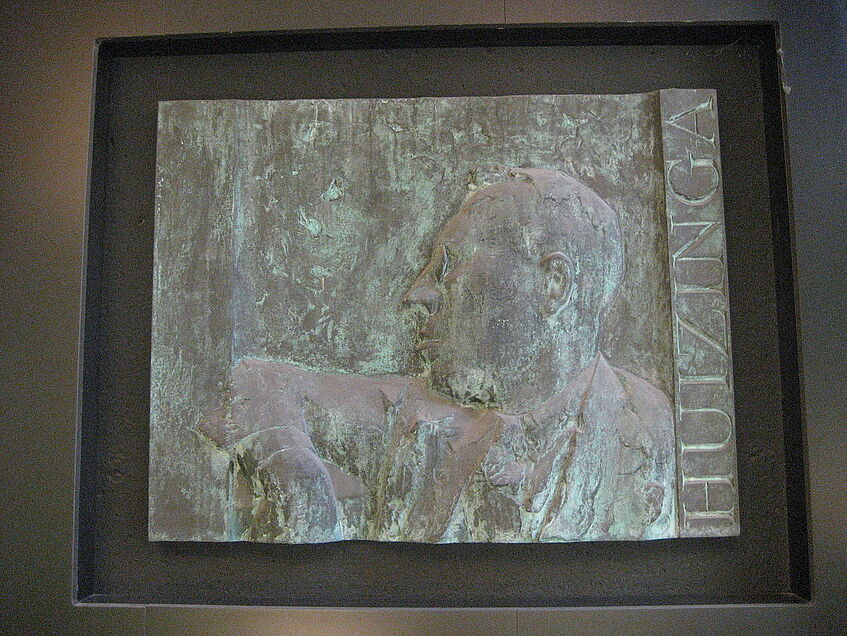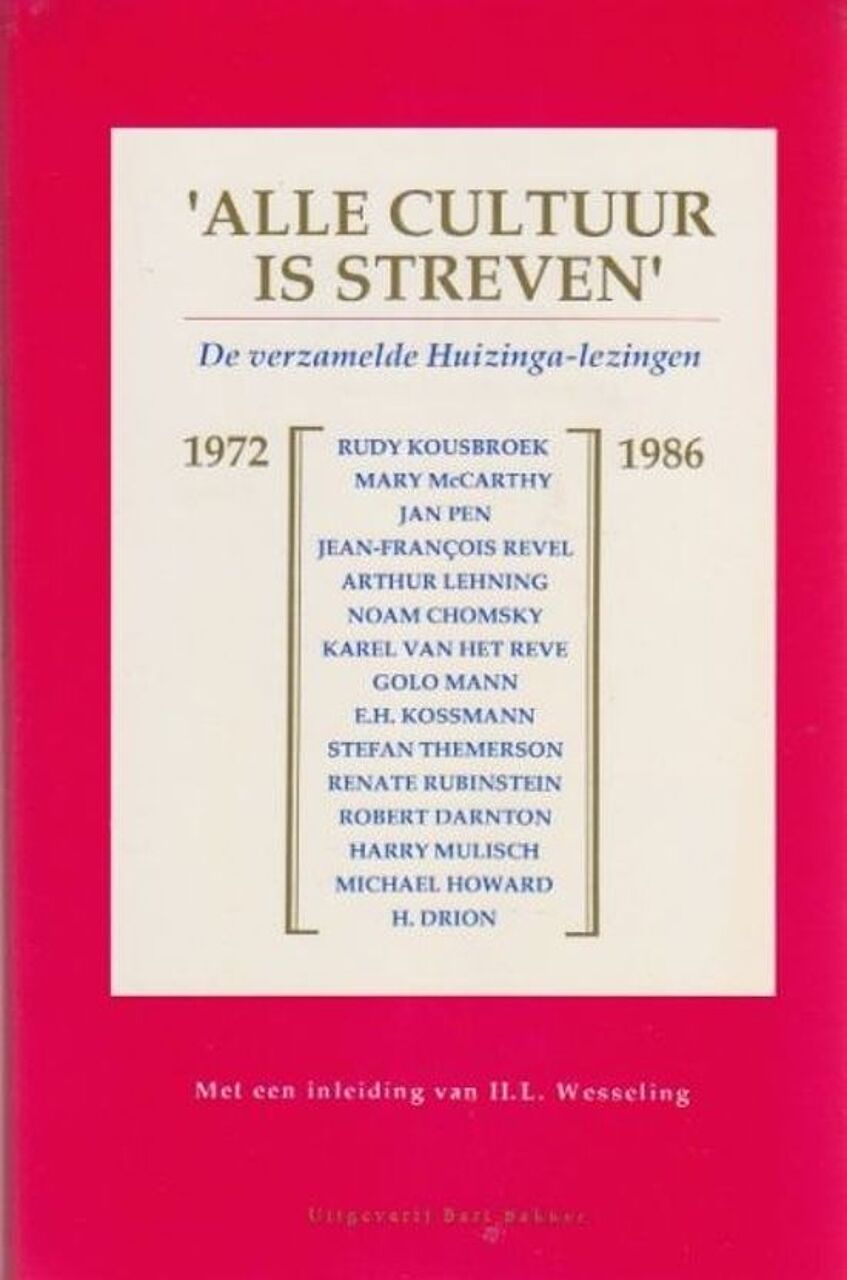Huizinga Lecture
Since 1972, the University of Leiden organizes and hosts the annual Huizingalezing, a lecture centered around a subject of cultural history of cultural philosophy.
The lecture is co-organized with NRC Handelsblad and the Maatschappij voor Nederlandse Letterkunde (Dutch Society for Literature).
Amongst the impressive list of speakers figure various famous Dutch writers and intellectuals such as Rudy Kousbroek (1972), Karel van het Reve (1978), Renate Rubinstein (1982), Harry Mulisch (1984), Gerrit Komrij (1990), Louise Fresco (1998), Marita Matijsen (2009) and Bas Heijne (2013).
Various internatinally acclaimed speakers include authors and intellectuals such as Mary McCarthy (1973), Jean-François Revel (1975), Noam Chomsky (1977), Susan Sontag (1989), Joseph Brodsky (1991), Nadine Gordimer (1995) and Carlos Fuentes (2006).

Huizinga plaque at Leiden University. Relief in History Institute, Doelensteeg 16, Leiden
Huizinga Lecture 1984
Click on the link to listen to a recording of Harry Mulisch' Huizinga Lecture.

Huizinga Institute

The Huizinga Instituut was founded in 1995 and focusses on the study of culture in its historical manifestations and dynamics. The Huizinga Instituut functions as a research network for Cultural History.
In the institute's Mission Statement, a clear link is made with the work of Johan Huizinga:
"Taking a lead from Johan Huizinga, we understand culture as a system of ‘life forms’: usages, values, opinions, practices, objects, arts and knowledge, which may exist within a group and to which the group attaches meaning. Cultural history is distinguished by the very diverse range of sources it documents and uses (such as various kinds of text, images, music, smells, performativity, and heritage, both material and immaterial). Cultural history is also distinct from the field of Cultural studies because of its focus on historicity and the historical method, emphasizing historical dynamics and processes of change, interaction and appropriation across time and space. Cultural history is above all an interdisciplinary subject: within the Humanities it combines concepts and methods from history, art history, literature, theatre studies, book history, and more, and seeks interaction outside the Humanities with the social sciences (e.g. through cultural anthropology), with the natural and medical sciences (through the history of science and medical humanities), and with computer sciences (digital humanities). Within this disciplinary field, new approaches, focus points and specialisms emerge periodically . Given the importance of culture for processes of identification, the history of identity also occupies an important place in the discipline. Although much of the Institute’s work is on historical events which take place outside the Netherlands, since the time of Johan Huizinga there has been a powerful academic tradition of cultural history focusing on culture in the Netherlands and its connections with Europe and the wider world, together with a significant outreach to the Dutch public."
Learn more about Huizinga Instituut.
